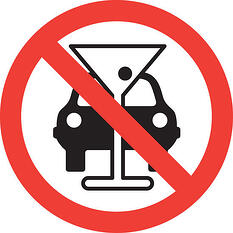Part 1 of 2: Improving Profitability Through Proper Planning and Quality Control
 Money losers in a bar come in many forms, and you will want to check your financial records carefully to make sure that you are not being affected by one of these:
Money losers in a bar come in many forms, and you will want to check your financial records carefully to make sure that you are not being affected by one of these:
- No plan. Many bar owners have no clear plan of where their bar is headed and what they need to purchase and do to get there. Many say "I only want to run a bar." However, running a bar, like anything else, is a goal, and goals always require a plan. You should know where you will be expanding and how. You should know what products you need to order and when. Keeping everything on paper in the form of a business plan and purchase orders can help make it clear to you.
- Lack of local products. Many bar managers will justify their lack of local beer by stating that their bar's style or type does not call for local beer. In fact, local beer and local food products are often the best-selling items in any bar. Many customers like or support the local beer, and visitors from other areas are often eager to try the local fare. Always offer local products, even if your bar has a uniquely international or exotic theme. As an added bonus, local products are often easier and less expensive to ship and buy, ensuring higher profit on your initial investment.
- Spoiled food and drinks. Spoiled product is lost profit. In some cases, such as a major power disruption, this can be hard to avoid. In most cases, though, spoilage is caused by ordering too much. This is avoidable. Keep track of your inventory and past purchasing patterns and buy those products that you need in the quantities they were needed in the past. Frequent checks on inventory tell you when you are running low and when you need to stock up on certain products.
- Cutting corners on quality. Many bar managers use a variety of ways to reduce quality. In many cases, they do this not to consciously deprive customers, but out of the mistaken belief that low quality costs less. They think that offering less for more will result in larger profits, when, in reality, cutting corners usually keeps customers from coming back. Quality products—be it fresh fruit in drinks, generous portions of drinks, or pleasant bathrooms—will bring the types of repeat customers who will ensure that you make money.
- Staffing problems. There are many staffing problems that can cost you money. Hiring or keeping unqualified or unproductive staff (because they are friends or family members, for example) is terrible for your bottom line. Selecting the wrong staff is a problem that can cost you a lot of money.
- Poor storage, wrapping, and handling of liquor and foods. Beer that is left out to get warm, meat that is thawed and allowed to spoil, and food and drinks that are incorrectly handled can mean waste or even food poisoning for your customers. You do not want the health department investigating your bar for poor management of food and drink. Make sure that you control how food and drinks are stored and handled. Food and drink preparation areas should be clean, and staff should keep all products that need to remain cold in the refrigerator or freezer. Food and drinks should be stored and served at their appropriate temperatures to ensure that your customers stay safe.
- Poor attitude or atmosphere. Customers want a place where they can relax and get great service. If your bar is unpleasant, you will lose money by losing customers. You need to make sure that your bar is an inviting place not only to drink and eat, but also to linger.
- No customer concern or no customer market research. Bar managers are busy people, and while they may not overlook customers on purpose, far too many lose sight of bar patrons as they worry about the many other elements of running a bar. Not catering to customers, however, can ensure that a bar will lose a lot of money. Not only will unsatisfied customers not return, but they will often share their experiences with other people—potential patrons. In order to avoid losing money, it is important for bar managers to not only please customers, but to impress them enough to make them wish to return. Regular market research will reveal not only who your bar's customers are, but also what they want.
This article is an excerpt from the The Professional Bar & Beverage Managers Handbook: How to Open and Operate a Financially Successful Bar, Tavern and Nightclub, authored by Douglas Robert Brown, published by Atlantic Publishing Group. This excerpt has been reprinted with permission of the publisher. To purchase this book go to:


 Many of the best bartenders learn most of their useful trade while at work. This is because bartending schools vary widely in quality. Some emphasize the preparation of rarely requested drinks without stressing useful skills such as bar management, customer satisfaction, and customer safety. If you are hiring a bartender, you should consider the school he or she has attended, but testing practical skills will give the best clue of how many useful skills the person has for waiting on your bar. If you are considering attending a bartending school, investigate the school to make sure that you will be taught skills such as organization and techniques of serving. A good bartending school or course will emphasize dealing with customers. Be wary of a bartending school that is more of a "drink mix" school, stressing mixing many types of drinks without teaching anything besides drink preparation. There are many of these sorts of schools out there, which claim that a bartender's greatest asset is knowing how to mix an endless variety of drinks. Learning to mix the latest drink is relatively simple once one looks up the recipe, and most patrons will order the most popular drink of the moment rather than some obscure mix. A bartender with a good grasp of people and basic bartending techniques is usually more useful than the bartender who only knows how to mix hundreds of drinks from memory but has few skills besides. In some cases, an employee with a hospitality degree is better able to handle the bar job than someone who has attended a bartender school.
Many of the best bartenders learn most of their useful trade while at work. This is because bartending schools vary widely in quality. Some emphasize the preparation of rarely requested drinks without stressing useful skills such as bar management, customer satisfaction, and customer safety. If you are hiring a bartender, you should consider the school he or she has attended, but testing practical skills will give the best clue of how many useful skills the person has for waiting on your bar. If you are considering attending a bartending school, investigate the school to make sure that you will be taught skills such as organization and techniques of serving. A good bartending school or course will emphasize dealing with customers. Be wary of a bartending school that is more of a "drink mix" school, stressing mixing many types of drinks without teaching anything besides drink preparation. There are many of these sorts of schools out there, which claim that a bartender's greatest asset is knowing how to mix an endless variety of drinks. Learning to mix the latest drink is relatively simple once one looks up the recipe, and most patrons will order the most popular drink of the moment rather than some obscure mix. A bartender with a good grasp of people and basic bartending techniques is usually more useful than the bartender who only knows how to mix hundreds of drinks from memory but has few skills besides. In some cases, an employee with a hospitality degree is better able to handle the bar job than someone who has attended a bartender school.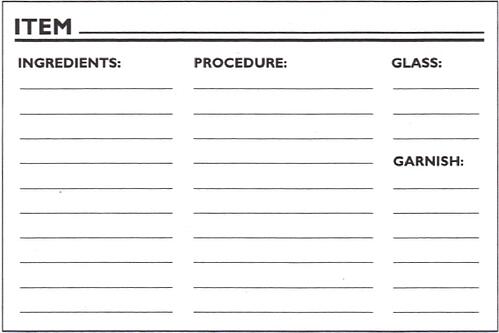
 When you design your service area, it's important to realize that every step a bartender takes in the serving of a drink is costing you money and making your customers impatient. Where does your staff need to walk to get a clean glass? How far from there to the ice bins and then to the spirit dispenser? And where are your soda guns in relation to the bottles? Is the cash register yet another trip away from the customer? Even if your bartender has to take only four or five steps between each of these posts, consider how far that means your bartender has to walk in the course of serving 500 drinks a night! This is bad enough for a solo bartender, but when two or three people are working behind the same bar and sharing facilities, it can be an unproductive nightmare.
When you design your service area, it's important to realize that every step a bartender takes in the serving of a drink is costing you money and making your customers impatient. Where does your staff need to walk to get a clean glass? How far from there to the ice bins and then to the spirit dispenser? And where are your soda guns in relation to the bottles? Is the cash register yet another trip away from the customer? Even if your bartender has to take only four or five steps between each of these posts, consider how far that means your bartender has to walk in the course of serving 500 drinks a night! This is bad enough for a solo bartender, but when two or three people are working behind the same bar and sharing facilities, it can be an unproductive nightmare.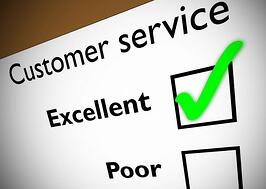
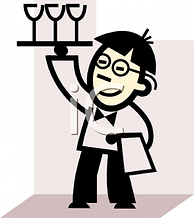
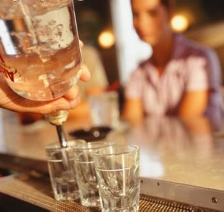 A bar business is not, as many people think, a service industry. Of course, it's part service industry, but it's also very important not to forget that it's also an entertainment industry. Do your bartenders entertain your customers while they are serving them?
A bar business is not, as many people think, a service industry. Of course, it's part service industry, but it's also very important not to forget that it's also an entertainment industry. Do your bartenders entertain your customers while they are serving them?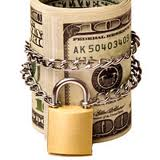 More often than not, scams and thievery can be detected and/or prevented relatively easily. Strict enforcement of all employee rules is a must and vigorous prosecution of any offenders is essential. Employees must be made clearly aware of the dire consequences of flouting the house rules - every detail must be addressed.
More often than not, scams and thievery can be detected and/or prevented relatively easily. Strict enforcement of all employee rules is a must and vigorous prosecution of any offenders is essential. Employees must be made clearly aware of the dire consequences of flouting the house rules - every detail must be addressed.